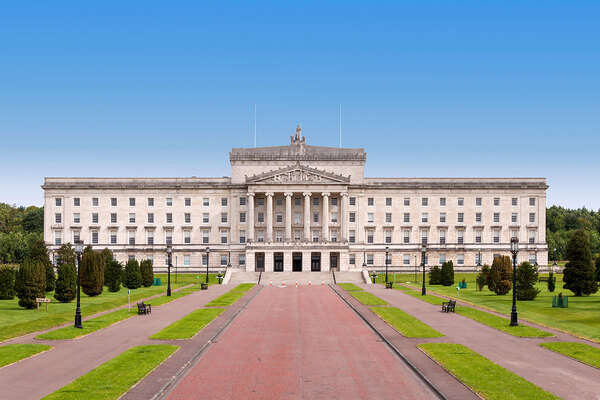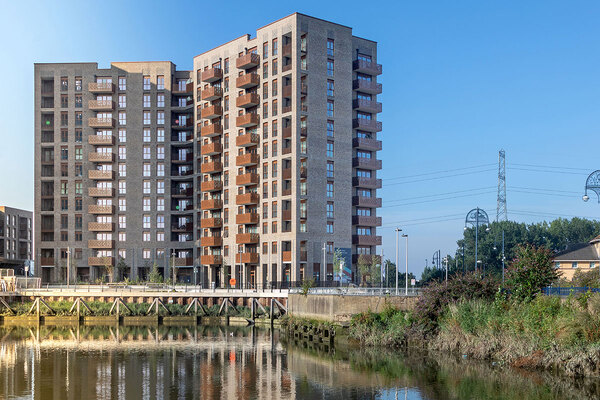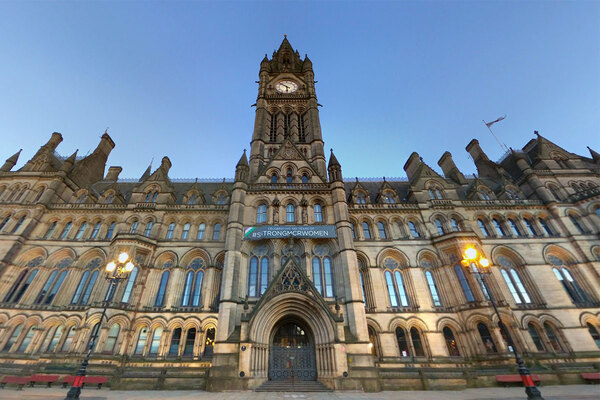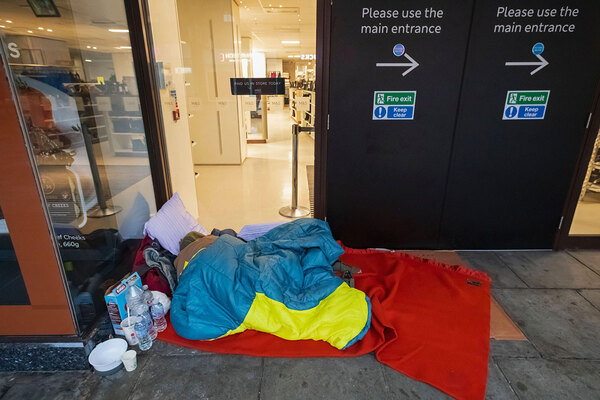You are viewing 1 of your 1 free articles
What can Ireland teach us about prioritising housing?
Take a look at what’s happening in a country close to home and you will find an election where housing really was the number-one issue at the polls, writes Jules Birch
What would our politics look like if housing really were the most important issue in a general election?
After a week that has seen the Labour government set out a series of bold planning reforms in pursuit of its ambitious target of 1.5 million new homes in England in this parliament, it’s a question that may seem to be moot or unrealistic depending on your point of view.
But it does not have to be either: take even a cursory glance at what’s happening in a country close to home and you will find an election where housing really was the number-one issue at the polls.
The election in Ireland may not seem to have changed very much – the government will still be led by Fine Gael (FG) and Fianna Fáil (FF) as coalition negotiations continue – but housing could be set for a transformation.
On issues ranging from social housing investment to security of tenure for private renters, those parties of the centre-right are well to the left of anything that Labour is proposing in England (or Wales).
On housebuilding numbers alone, the contrast is staggering. That target for England works out at 300,000 a year and is widely seen as highly ambitious, not to mention unachievable.
In Ireland, FF and FG plus the Progressive Democrats and Labour, the two centre-left parties that could form part of a coalition, are all promising 50,000 to 60,000 new homes a year. Adjust for England’s population (57.1 million) compared to Ireland’s 5.3 million and you get a range of 540,000 to 650,000 per year. That’s a level that really could make a difference to affordability rather than just slowing down the rate of house price growth.
There is a consensus on this across all the main Irish parties, including the main opposition, Sinn Féin.
It’s a similar story on investment. With the government’s fiscal position rocket-boosted by a €14bn tax windfall from Apple (£11.6bn but worth more than 10 times that, given England’s higher population) all the parties are committed to more spending. FG is pledging total housing investment of €8bn a year (£6.7bn or the equivalent of £72bn).
“FG and FF are promising 11,500 to 12,500 social homes a year, which equates to at least 125,000 a year in an English context”
FG and FF are promising 11,500 to 12,500 social homes a year, which equates to at least 125,000 a year in an English context. That is far more than the 90,000 a year called for by housing organisations in England, let alone anything envisaged by the government.
And there is no affordable-social jiggery pokery going on here either: there is an affordable element on top of those numbers, with FG and FF promising a total non-market output of 22,000 to 24,000 (240,000 to 250,000) a year.
Within that, a programme called cost rental is aimed at the squeezed middle who do not qualify for social housing but struggle to afford private rents.
Cost rental was introduced in 2021 and only 2,000 homes have been built so far. For tenants, they offer security of tenure and rents that are meant to be 25% below the private rental equivalent for the area.
So that sounds like an Irish version of affordable rent, with the crucial difference that this is in addition to rather than instead of social rent.
FG is promising 3,500 cost rental homes a year, while the Social Democrats and Labour want 5,000 and action to reduce rents that are still high.
Even that lower number is the equivalent of almost 40,000 a year in an English context and this is for a tenure that does not exist here. Maybe it would if housing really was a priority.
And it’s not all about investment, with legal changes on the way, too. While our government strengthens renters’ rights and resists any hint of rent control, the debate in Ireland has long been ahead of ours and is moving even further ahead.
Some of the strictest rent controls in Europe restricts rent increases to 2% a year in Rent Pressure Zones (RPZs) covering the most expensive rental markets. RPZs, which inspired something similar in Scotland, are under review and there could be moves to adopt German-style reference rents.
On security of tenure, Ireland already has longer tenancies, but parties on the left are calling for an end to clauses that allow evictions where the landlord wants to sell or move in a family member.
These are of course two of the mandatory grounds for possession that will be retained in England under the Renters’ Rights Bill when Section 21 is abolished.
“The fundamentals in terms of affordability and homelessness do not currently seem to be that different, but the political response to them definitely is”
Overall, the Irish approach to housing probably still puts too much emphasis on homeownership and not enough on homelessness, but there seems to be a remarkable consensus across the political spectrum.
To find out more about housing in Ireland, Mick Byrne’s newsletter is the best starting point.
All this begs the question of why housing has so much greater salience as a political issue than it does in the UK.
The fundamentals in terms of affordability and homelessness do not currently seem to be that different (you can pick and choose statistical comparisons either way) but the political response to them definitely is.
This was true long before this election, with the previous coalition government publishing a Housing for All plan in 2021 that is well in advance of anything proposed in England in 2024 and establishing an independent Housing Commission that gives extra institutional weight to pro-housing arguments.
Wider factors must play a part, too. Ireland went through a much more traumatic bust after the financial crisis, with a house price bubble that burst and ‘vulture funds’ bulk-buying property.
Net migration is at a record high and at a comparable level to the UK, but this is happening in a country where high emigration was seen as the national problem until the late 20th century.
Whatever the reasons, the debate on housing here is several years behind the one happening across the Irish Sea. It’s about time we caught up.
Jules Birch, columnist, Inside Housing
Sign up for our daily newsletter
Already have an account? Click here to manage your newsletters













